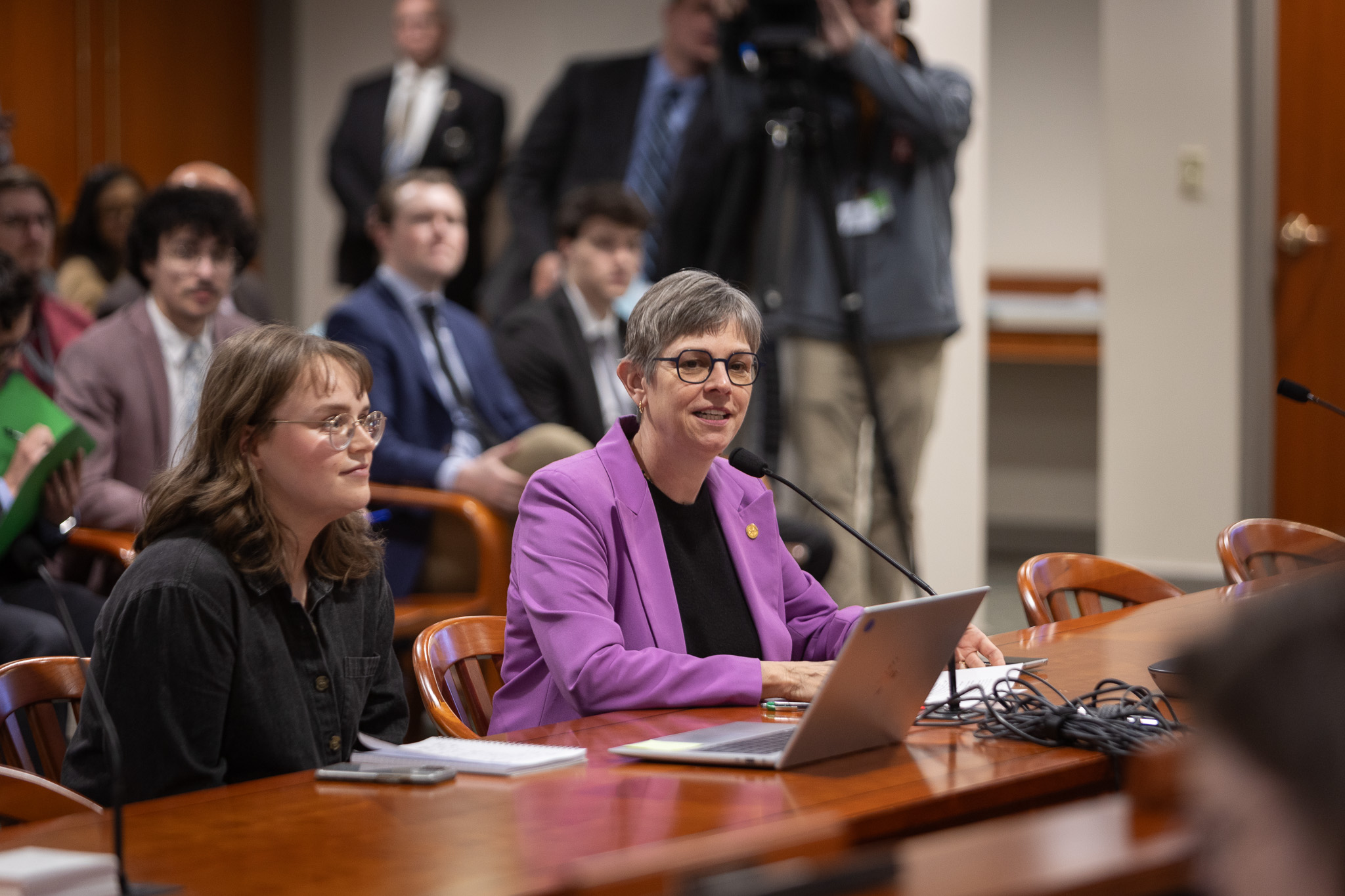LANSING, Mich., Nov. 26, 2024 — State Rep. Julie Brixie (D-Meridian Township) attended a roundtable last week to discuss a bipartisan bill package to close the “Dark Store” tax loophole and restore necessary funding from property tax revenue to our local communities. Also in attendance were state Rep. Jenn Hill (D-Marquette), Meridian Township Assessor Ashley Winstead, Bridgman Schools Superintendent Shane Peters and Debbie Mikula from the Michigan Library Association.
Brixie and Hill, alongside their colleagues, state Reps. Mai Xiong (D-Warren) and Greg Markkanen (R-Hancock), introduced House Bills 5865-8 to close the dark stores tax loophole, a strategy used by retailers to lower what they pay in property taxes by arguing that the value of functioning big box stores should be based on the sale prices of vacant big box stores.
“Using this theory, a brand-new investment like a $20 million Costco or Menards could be taxed the same as a shuttered Kmart and pay less per square foot in taxes than a small mom and pop shop,” said Brixie. “Our bipartisan legislation ensures that these stores pay their fair share and keep our local budgets fully funded.”
According to Brixie, the reason vacant big box stores are not comparable is because the departing store places deed restrictions on the building that prevent competitors from opening up in them, stripping them of value because they cannot be used as another big box.
This bill package would prohibit big-box retailers from reducing what they pay in property taxes by using the sales price of vacant, deed-restricted stores as comparables, requiring petitioners to provide appraisals when filing appeals and setting standards for the Michigan Tax Tribunal’s independent determinations of true cash value to align with generally accepted appraisal principles.
“Public services in local communities across Michigan, especially those in the Upper Peninsula, have been slashed due to this unfair tax loophole,” Hill said. “No community should ever be worried about their ability to afford necessities such as fire trucks due to loss of funds from this unfair policy. Our legislation closes this loophole to help preserve local budgets.”
Michigan law allows a three-year lookback for property tax appeals. In many cases, local governments and schools had to repay thousands of dollars in property tax revenue back to big box stores.
The dark store strategy has gained traction and is now being used by other types of corporate entities. In 2022, the Indiana Michigan Power Co. filed an appeal with the Tax Tribunal that resulted in a settlement with Lake Charter Township that reduced the plant’s appraised value by 12%. Bridgman Public Schools, whose funding comes partially from property taxes on the plant, is now faced with a $1.2 million loss in funding.
“Our schools provide an invaluable service to the children in our community and deserve to be fully funded,” Peters said. “Ending this tax loophole will put an end to this corporate greed and allow public services across Michigan to receive their full, fair funding.”
The bill package is currently awaiting a hearing in the House Tax Policy Committee.
###

